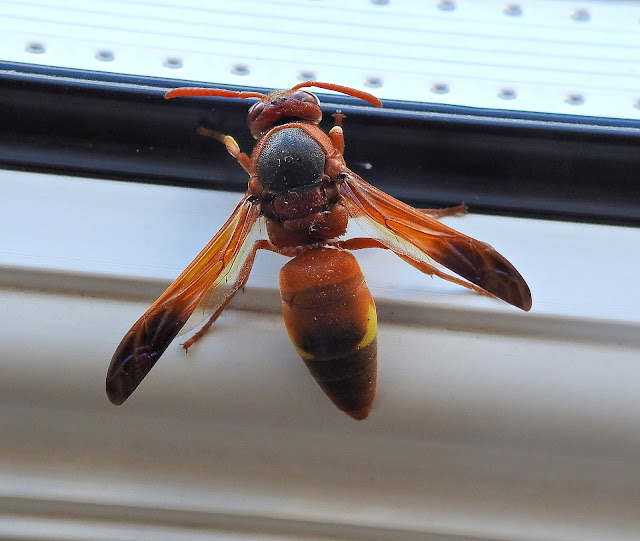A widespread species, found mainly around the warmer Mediterranean Countries of Europe and into North Africa; reaching over to the far eastern countries of Iran and neighbouring countries.
R. oculatum, is a large solitary Potter wasp, having an important part in the biological control of many lepidoptera (Geometridae, Tortricidae) Caterpillars, also Coleoptera, (Curculionidae, Chrysomelidae) Larvae of Beetles, which are preyed upon, to provide provisions for their young larvae.
The prey is paralised, then taken to her nesting site, usually the nest is found in decaying wooden holes and crevices, sealed with mud.
This wasp is beneficial to commercial growers and gardeners, as like most wasps, they are a natural biocontrol of garden pests, such as beetle larvae, flies and a variety of caterpillar pests.
Habitat: Many various locations, from dry scrub areas to rich meadows, grasslands, orchards, crop fields, urban gardens and wetlands, wherever their prey and nectar plants are to be found.
A variety of plants are visited by the adult wasp for pollen and nectar, Plants belonging to the Euphorbiaceae (Spurge Family), Asteraceae (particularly the hardy common Ragwort) and Apiaceae family (mainly parsley) seem to be mostly favoured.
Rhynchium oculatum is not considered to be aggressive, but If the wasp feels threatened, especially near a nesting site, they will not hesitate to protect their larvae. A sting can be very painful from this wasp and like all venomous animals, a sting can produce a potentially anaphylactic (allergic) reaction for some people. Don’t forget unlike most insects, a wasp can sting multiple times!


